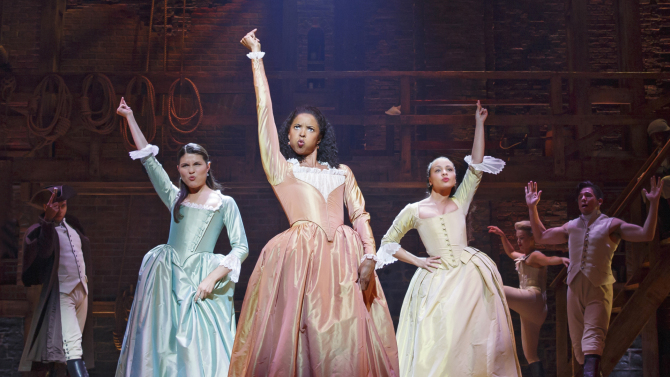Hamilton, the latest and greatest Broadway show from certified genius Lin-Manuel Miranda, has taken not only Broadway, but also much of the cultural consciousness by storm. And it’s no wonder why – with its refreshing cast comprised almost entirely of people of color, its invigorating hip-hop score, and its poignant take on history and politics, the musical has solidified its place in the canon. Hamilton tells the story of Alexander Hamilton, one of the founding fathers of the Untied States whose “enemies destroyed his rep, America forgot him,” or so Aaron Burr tells us in the opening number. We see the journey of his life as a Haitian immigrant to the American colonies all the way to his death in the country that he was integral in founding.
It’s thrilling to watch Hamilton duke it out with the rest of his 18th century buddies like Burr and George Washington. But, many of the most captivating moments come from figures who usually don’t get their own chapters in the history books: the women of Hamilton, specifically Angelica and Eliza Schuyler, who are the show’s feminist heroes.
While Hamilton passionately raps about his vision for a free nation, Angelica leads her two sisters Eliza and Peggy in their introductory number “The Schuyler Sisters” with equal, if not more, verve and vigor. They sing a line from the Declaration of Independence, adding the qualification, “…and when I meet Thomas Jefferson, I’ma compel him to include women in the sequel!” It’s a girl-powered moment that solicits many a snap and woot in agreement, and rightfully so.
Yet feminism, like just about every social movement, is not quite as clear-cut and easy as one empowering catchphrase. It’s exciting to hear the Schuyler sisters demand political equality, but the show continues on past this song to depict the men who actually got to build the American government. One can’t help but remember that those sisters actually wouldn’t get to see women’s suffrage in their lifetimes.
Feminism exists in the big moves toward equality, the passing of legislation and the organized movements. But it also happens in the in-between moments, the nitty-gritty of female-identifying people claiming agency and equality on a day-to-day basis, even in the face of adversity. And this is exactly what Hamilton gets right.
When we first see the Schuyler sisters interact with the men of the story, it seems as if we might be witnessing a classic love triangle, with both Angelica and Eliza pining after Hamilton. Yet, Angelica chooses not to pursue a man, acting in favor of both her sister and the greater good of her country. It’s a small action when compared to the government-building moves of other characters. And still, it is a decidedly feminist action, painting Angelica as truly strong character.
After Eliza and Hamilton marry, Eliza begs him, “Let me be a part of the narrative,” wanting him to include her in his piece of history; tagging along with him seems to be her only option. But as Eliza grows and soon endures numerous hardships, she takes on the agency to guide her own story, navigating how to build the narrative for herself, as she moves from the edges of the story to center stage.
Feminism is about equality in all facets of life. Hamilton is a show about storytelling, and so its true feminist triumph is in depicting the ways in which its female characters take on the story in their own way, through adversity and under the circumstances they’ve been given. Women always have a place, but not necessarily a voice. Hamilton’s women carve out space for their own voices and their own stories, in small but meaningful ways.
Hamilton will soon be replaced on the ten-dollar bill, and there has been much discussion and debate over whose portrait should take is place. Personally, I’m rooting for Angelica or Eliza.
Cover image courtesy of The Odyssey.




comments